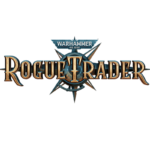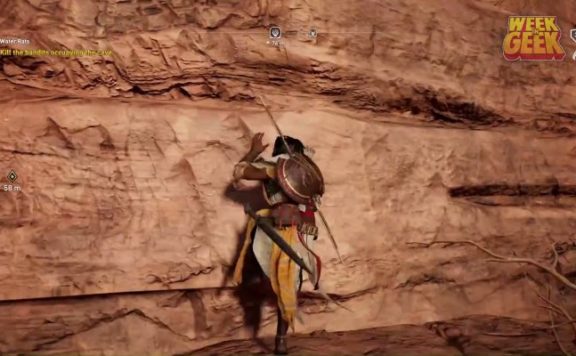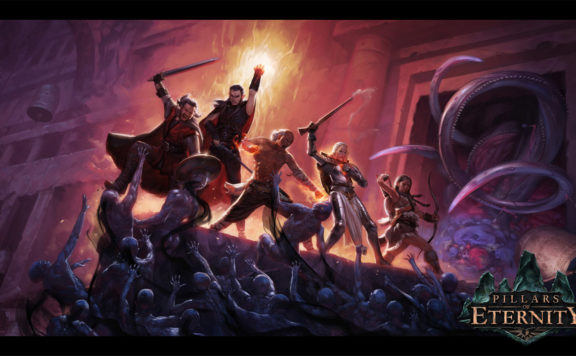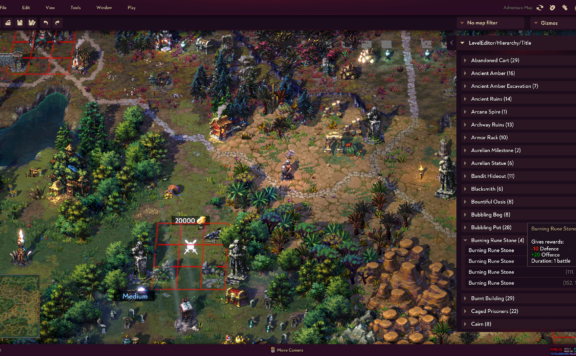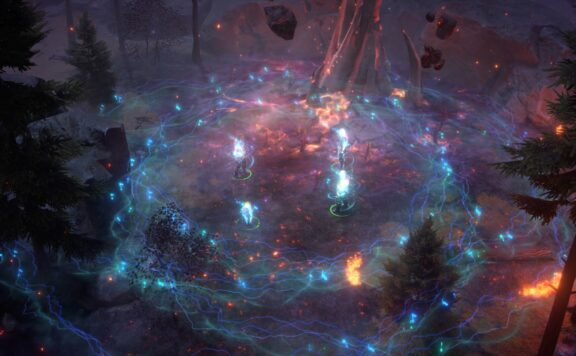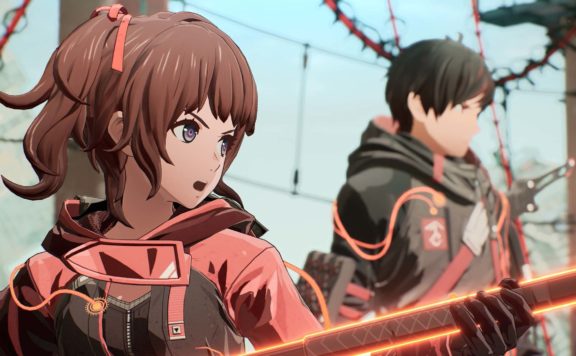Coming from developer Owlcat Games (Pathfinder: Kingmaker, Pathfinder: Wrath of the Righteous), Warhammer 40,000: Rogue Trader is a turn-based tactical cRPG that aims to immerse players in the grim darkness of the 41st Millenium. Your voidship is about to translate into the realspace, and so there has not been a better time to learn what the Koronus Expanse has to offer.
Whether you are a Warhammer 40k lover, a Pathfinder enthusiast or have no ties to both the franchise and the developer, Rogue Trader will provide you with dozens of hours of content to tackle. Stirring your Voidship through the Koronus Expanse, covering ground alongside your companions, striking deals, fighting against the enemies of your Dynasty and Mankind at large, finding hard truths and hidden secrets, all of that awaits you with the mantle of the Rogue Trader.
Note that there will be some mild spoilers ahead outlining the circumstances in which the protagonist acquires this noble title as well as certain situations that your Rogue Trader will face. Additionally, there are references to various companions, Convictions, and more. However, there are no major details past the 2nd Chapter of the game and absolutely no mentions of main plot’s endings or companion quests’ outcomes. That is something for your very own playthrough.
If you are not daunted at the prospect of facing some spoilers, recite a prayer to the God-Emperor and let’s get started! This is our Warhammer 40,000: Rogue Trader PC review. While you are at it, check out our Wishlist for the full version of the game, compiled after a complete playthrough.
The events of the game take place in the Koronus Expanse, a barely charted and highly perilous corner of space that fights tooth and nail just to keep its secrets. Simultaneously, it promises opportunities for those who are willing to take the risk and bend the Expanse to their will. Rogue Traders are exactly the right people for the job.
Granted the extra power and permissions by the Warrant of Trade, these remarkable individuals have the right and the duty to explore the depths of the void and establish order where before there were none. And let’s not forget about making some hefty profit in the process! Your protagonist is one such Rogue Trader, representing the von Valancius dynasty and trading protectorate that is going through some hard times due to the events at the very beginning of the game.
It is something that I’ve covered in more detail in my alpha impressions, but the position of the Rogue Trader is absolutely perfect for an RPG protagonist. This noble title provides you with the right to mingle with the elite and throw your weight around most NPCs, but at the same time you are not beyond reprisal, and there are those who will quickly remind you of it.
Additionally, considering the unlucky circumstances in which the Rogue Trader acquired the Warrant of Trade, it makes perfect sense that the newbie Lord Captain will firmly keep their hands on the reins and personally oversee any potential threat to the staggering von Valancius protectorate.
Last but not least, the Rogue Traders enjoy an unprecedented degree of freedom, being allowed to toy the line that would see any normal citizen of the Imperium dispatched on the spot. One such freedom, for example, is to make the deals with the vile xenos. While the Inquisition will eye your noble self and your retinue with certain suspicion at such acts, it is not outside of what is allowed in your position.
To sum it up, you are in a privileged but not untouchable spot that actively encourages you to personally explore the Expanse and build up your protectorate while giving you extra freedoms and the right to command most of those you see.
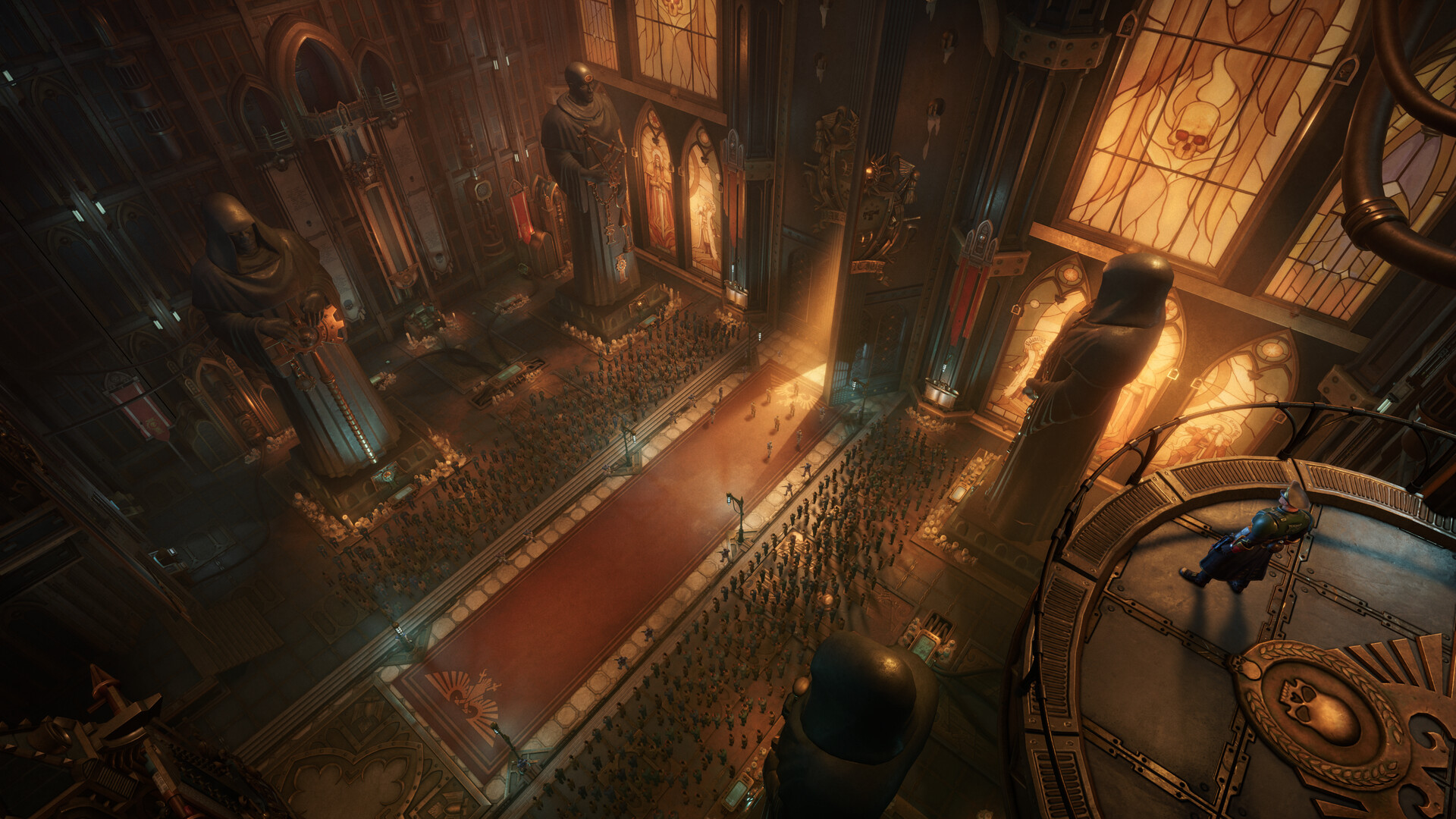
Playing a high-ranking official of the Imperium of Man does not mean that you will be burning people left and right for heresy. Or, at least, you don’t have to if you don’t want to, otherwise go right ahead!
It is up to you what your Rogue Trader will behave like in any given situation: you can attempt to make deals and talk your way out of danger, keep the tremulous peace by negotiating, but it is equally legit to grab the biggest bolter you own and start blasting.
There are plenty of opportunities for roleplay. Besides the base dialogue choices there will be additional options based on skill checks such as Coercion, Persuasion, Commerce, Tech-Use, etc., and the game’s Conviction system that allows players to make important narrative and gameplay decisions that will have lasting consequences.
There are a total of three Convictions:
- Iconoclast (previously Benevolentia) – the path of an idealist who believes that even in a cruel universe there is a place for nobility and compassion. Note that we’re still talking Warhammer 40k here, and sometimes a quick death is the limit of mercy you can grant someone.
- Dogmatic (previously Imperialis) – the path of the Imperial Creed, saving Humanity by destroying all that is unknown, unorthodox and alien. This is the typical 40k by the book Inquisitor approach, steadfast and merciless. The only thing a Dogmatic character despises as much as Heresy is weakness.
- Heretic – the path of Chaos and the corruption of soul. Everything else about this one is for you to find out as you play!
Convictions have a large impact on how the game’s story unfolds and how it will end, so make your choice wisely. You do not have to choose these options every time they come up, with the exception of a few situations there are usually non-aligned options to pick from as well.
However, choosing a Conviction-specific option gives you Conviction experience which, in turns, opens up further ranks and provides bonuses. Some extra dialogue options and gameplay choices require you to be of a certain standing in order to unlock them. There are also items with additional bonuses like stats that depend on your Conviction rank.
Deciding who lives, who dies, who tells your tale falls well within these choices. The fates of people from your retinue and entire worlds from your protectorate hang in its balance as well.
But enough about your protagonist’s narrative standing, let’s talk about the characters that surround them. The position of Rogue Trader exposes you to all kinds of humans and non-humans from various walks of life: Inquisitors and Navigators, Adepta Sororitas and Tech Priests, Cold Traders and even xenos will cross your path, and some of them will even express a desire to join you. Whether you choose to make some of them a part of your ever noble retinue or dispose of them to be forgotten forever is up to you.
Needless to say, the companions have certain long-standing beliefs shaped by their circumstances, and these circumstances will also lead them to frequently butt heads among themselves and, sometimes, even with the Rogue Trader when it comes to certain decisions. It is a great way to learn more about your retinue as their reactions and suggestions are not always what you’d expect.
Bringing a specific companion to a mission that might have relevance or certain connection to them also frequently opens up additional dialogue options and choices. For example, your Seneschal Abelard knows the von Valancius trade protectorate and what makes it tick like the back of his hand. Bringing him to any location that features Theodora’s old associates is likely to provide you with an extra insight and even offer new ways of dealing with some situations. On the other hand, Pasqal is a devout follower of Omnissiah. Any time there is an interesting piece of equipment to tinker with or other Tech-Priests around, he will have something to add.
Of course, every companion has their own personal quest chain(s) that span almost the entirety of the game. There are multiple ways to go around these quests with outcomes affecting your companions’ dispositions and values as well as their relationship with the Rogue Trader and each other.
Of course we’re talking about an Owlcat game, so there are a number of romances to partake in if that is your kind of thing: a serious duty-over-feelings romance? In. A playful, easygoing relationship? There is one. A deep platonic bond? Yep, and more. The only drawback (if you consider it that), is that companions have their own preferences and, coupled with your own Rogue Trader’s sex and preferences, it might affect the overall number of already limited choices available to you to a point where you might feel like the game doesn’t offer what you want or would like.
Overall, due to the various ways to roleplay your own Rogue Trader between the Convictions and skill-driven options as well as multiple decisions provided during the quests and companions’ stories, the game offers enough content for a few separate playthroughs, just to see how your decisions shape out in the long term.
Don’t be surprised if a few spur of the moment choices come to bite you in the ass or offer an unexpected opportunity a dozen hours later when someone reminds you of your actions. Of course, going for the Heresy is a whole separate matter…
If you had a chance to dabble in the Pathfinder games, you can easily imagine the depth of the character creator and the flexibility of the difficulty settings offered in Warhammer 40,000: Rogue Trader.
But first things first: if you decide to go for a custom character, you get to make a bunch of choices that will shape your Rogue Trader to be. In addition to the appearance (including augmentations, voice and portrait that can be changed for a custom one), players will get to choose the character’s homeworld, origin, triumph and darkest hour, all of which will have certain gameplay effects like providing extra stats or lowering an attribute.
Once you are done with your character’s background, the real fun begins with the choice of Archetypes that serve as your class as well as accompanying characteristics. There are four baseline Archetypes: Warrior, Officer, Operative and Soldier.
Once you have maxed out your base Archetype, you will unlock the second-tier doctrine: Assassin, Vanguard, Bounty Hunter, Master Tactician, Grand Strategist, and Arch-Militant. Once this selection is maxed out, you will unlock the third-tier doctrine: Exemplar.
Note that not all second-tier doctrines are available to all baseline Archetypes. For example, Operative only has access to Assassin, Bounty Hunter and Grand Strategist, while Soldier can unlock Bounty Hunter, Master Tactician and Arch-Militant.
You can preview the abilities provided by the Archetypes before you commit to a decision. The initial and the advanced archetypes synergize well with each other, strengthening your character and their allies alike and providing more ways to affect the tide of battle.
For players who are new to the genre or the class system, upon leveling up the game suggests the most useful abilities for standard character Archetypes. If you are playing on normal and don’t like to spend time tinkering with builds, that’s about as much as you need.
On the other hand, there are also plenty of abilities and feats to try out a variety of ways in which you can take your character. Take Cassia, for example. By default, she has both the damaging Navigator abilities as well as the Officer skills that buff your characters and offer opportunities for teamwork. It is up to you which way you want to build her. Same with Heinrix: do you focus on his Psyker abilities or melee damage? Or perhaps incorporate both in a hybrid build? The limit is your imagination and the level cap.
While there are certain similarities, Warhammer 40,000: Rogue Trader is certainly not Pathfinder: Wrath of the Righteous 2. The games’ approach to combat is very different despite it looking similar at the first glance with the difficulty checks and die rolls.
In Rogue Trader, Owlcat Games had a chance to dive deeper into what can be squeezed out of exclusively turn-based combat. And the result is a much more tactical, positioning, and teamwork-driven approach that takes in account surroundings and momentum.
The battlefield is divided into a grid, with player characters and enemies alike being able to take advantage of full and half covers that offer varying degrees of protection, destructible environments, and more.
While preparing to use a harmful ability, you will see a percentage that points out the chance of it hitting the enemy and the prediction of the damage it might do. That also allows players to pick the most opportune target – be it focusing your entire team on an especially fat enemy or picking out the stragglers first. Note that many abilities and weapons have the penetration effect that might hit another character standing behind the intended target, including your characters.
Similarly, the game shows projections of your characters when you are planning to move, outlining the line of sight of the new position and more, making sure that you don’t just pluck down your sniper only to find out she can’t hit anyone anymore.
Other new additions include the Momentum and the Veil Degradation:
- Momentum is needed to use special abilities called Heroic Acts and Desperate Measures. The level of momentum starts at 100 at the beginning of combat and changes depending on the actions of the characters. At 175, you can use the powerful Heroic Act. At 25, if the battle is not going well, you can attempt to turn the tide with a Desperate Measure – another powerful ability that will also give the party a number of negative effects.
- The level of Veil Degradation reflects how much the Warp is bleeding into the realspace due to the excessive use of Psyker abilities or Daemonic influence. There are certain abilities that help stabilize the Veil to prevent it from causing a negative phenomenon called the Perils of the Warp.
The Rogue Trader beta also introduced the combat preparation phase which allows you to place your characters around the battlefield before the battle starts. Provided you weren’t ambushed, of course, then there is no time to pluck Abelard out from between all the squishy ranged companions!
One of my favorite aspects of the game is the sheer diversity it has in, basically, everything. Weapons, abilities, builds, enemies and friends alike, the locations and biomes you get to visit and even the ships you get to demolish in ship combat.
Lasguns, sniper rifles, pistols, xenos weaponry, bolters, flamers, melta-weapons, a great deal of melee options, all coming with its own sounds, pros and cons. All of the above helps add to the feeling that you have an expansive, almost endless universe at the tips of your fingers, and you have only just started to explore a tiny corner of a tiny corner.
Of course, it would hardly be a Warhammer game centered around exploration if there were no actual space travels, system scanning and planetfalls. Rogue Trader’s approach made me fondly remember Mass Effect 3 days.
The systems of Koronus Expanse are linked in a linear fashion. To travel from one system to the next, you first need to have your Navigator explore and chart the course. Depending on the length and difficulty of the path, you have a certain chance to be attacked by enemy forces of various levels of strength. You can also use the very limited Navigator’s Insight to make the journey safer.
Once you arrive at the system, you get to manually fly among the planets, asteroids, stations, ship debris, and other points of interest. This is also where you can duke it out with various unsavory types in a turn-based ship combat, be it pirates, xenos scum or other threat.
Much like it was in the alpha, once you dispatch all threats, you can finally approach the goal of your travel and scan it. Most planets only offer a resource to be extracted or a number of items to be added to your cargo, but there are some that provide an optional challenge or storybook event, like an abandoned bunker or malfunctioning extractor that can be picked apart for useful details or repaired if you have what it takes.
A few planets can be boarded at which point the game switches to the usual squad-based gameplay. Admittedly, a couple of these optional bunkers gave me more trouble than the main quest when I’d stumbled on something I was completely unprepared for.
Since alpha & beta, ship combat underwent a massive transformation, from UI & visuals, to the ship management window to the balance changes and many gameplay updates. Now it is quite a smooth experience, spiced up by various abilities and cleaner visuals. Still, I suggest throwing your all in colony management until you can get an escort ship before you truly engage.
As you play, you will also unlock new abilities and equipment for your voidship.
Being able to speed up the animations (which is an option available through the game settings, it also affects the ground combat) solves almost all of the problems of this feature. Almost.
For a head of a giant trading protectorate, it won’t make sense to personally trade in random lasguns and knives for few meager credits and use them to purchase medkits or stims. This is where Cargo and Profit Factor come into play.
Most items belong to a certain type of cargo and have a number reflecting the percent of a cell associated with it. For example, a Drukhari knife would be equal to 10% of Xeno-Artefacts Cargo cell. Having collected enough items in the Cargo to acquire 100% of a cell fills it up and allows the Rogue Trader to, well, trade it for reputation from an interested party.
In turn, increased rep unlocks more stock from the aforementioned party, including gear, ship equipment, consumables and much more.
However, to acquire it, you actually need to match the requested Profit Factor which reflects the standing and the financial stability of your protectorate. The Profit Factor can be increased (or decreased) by partaking in the colony management or via certain narrative decisions such as deciding to help someone out financially.
While you can personally approach an envoy from a trading faction, there is no need to do so. Your voidship’s High Factotum can arrange the transport of needed goods if you order him to. He is also the person responsible for hiring mercs and retraining your Rogue Trader and companions should you need to.
It might take a while to get used to the system, but it does wonders for the immersion, although the Cargo and the overall Inventory management could use some love in the sorting and searching department. At the very least, you can assign items to the Cargo straight from the Inventory with a single click if you go to the Cargo management window.
Warhammer 40,000: Rogue Trader is a phenomenal roleplaying experience offering an immersive story and an impressive, highly-connected web of features and systems. The soundtrack, writing and voice over are all deliciously over the top, and gameplay offers a new step forward in a tactical cRPG genre, rewarding clever positioning, teamwork and attention to details.
However, much like its older Pathfinder cousins, Rogue Trader is brought down by its sheer bulk. To name a few: the story and character interaction pacing, quantity-over-quality approach to encounter design outside of boss/quest/a few gotcha exploration battles, intriguing but quite basic sub-systems that stretch out your time in game, uneven difficulty curve, and bloated list of abilities, effects and loot to sort through.
Some of these grievances can be eased by tinkering with the game options and difficulty settings. For example, speeding up the combat by skipping all the hand-waving buffing animations and leaving only the actual attacks and movement which can be greatly accelerated as well. Does it solve the problem completely? No, but it certainly helps to lessen the overall amount of time you will have to watch a horde of well-meaning but mind-numbingly slow friendly NPCs. The same applies to ship-to-ship space battles and chasing after the pirates across the grid.
The release build took a huge step forward in terms of stability and smoothed the overall technical state of the game compared to the review version, ruthlessly purging bugs and issues, but quite a few still remain. The usual: missing descriptions, ability overview not matching what the skill actually does or its numerical values, broken interactions, the like. Most of the bigger bugs that have soured my impression of the earlier build did not make it into the launch version.
Another subjective and deeply personal drawback arrives when it comes to Owlcat’s writing of evil or, in this case, Heretical path. With the way certain devout companions like Argenta and Heinrix describe Heresy, it is painted as this subtle, alluringly addictive, almost seductive thing. That, when you realize that you’ve fallen into its clutches, its already too late and there is no way back. In reality, a lot (but not all) of low-level Heretic choices amount to “I don’t like your face, die” or “it will be interesting to watch you suffer”. It is certainly legit for people looking for this type of playthrough, and high-tier Heretic choices might be staggeringly epic when it comes to your companions, but personally I doubt I would be able to get through these to see the end-game content this path provides.
And there you have it: a flawed, but extremely fun and addictive Owlcat cRPG set in the grim darkness of the 41st Millenium. If you have always wanted to try out Warhammer 40k but didn’t know where to start, Rogue Trader can serve as a perfect stepping stone into the franchise. The game manages to strike a balance between roleplaying options and a thoughtful immersion into the lore of the universe without making it feel suffocating.
Note: Owlcat Games provided an early access key to a special review build of Rogue Trader for the purposes of this article. It did not include the last round of fixes and day one patch and, for this very reason, its technical state did not match what players will see for themselves after launching the game past its release. Additionally, despite spending over 80 hours in this early build version, I still did not beat the game fully at the moment of writing this article, having paused my playthrough mid-Chapter 4.
This is why the review initially went up unscored, with an update after several more hours of testing the release version. As a reviewer, I couldn’t handwave the initial buggy experience away even if Owlcat Games is a studio well-known for their strong post-launch support, yet rating the game on what I’ve actually played through would also have been unfair to its final build.

